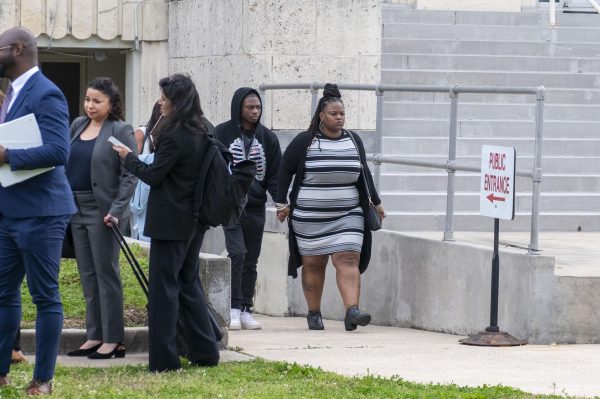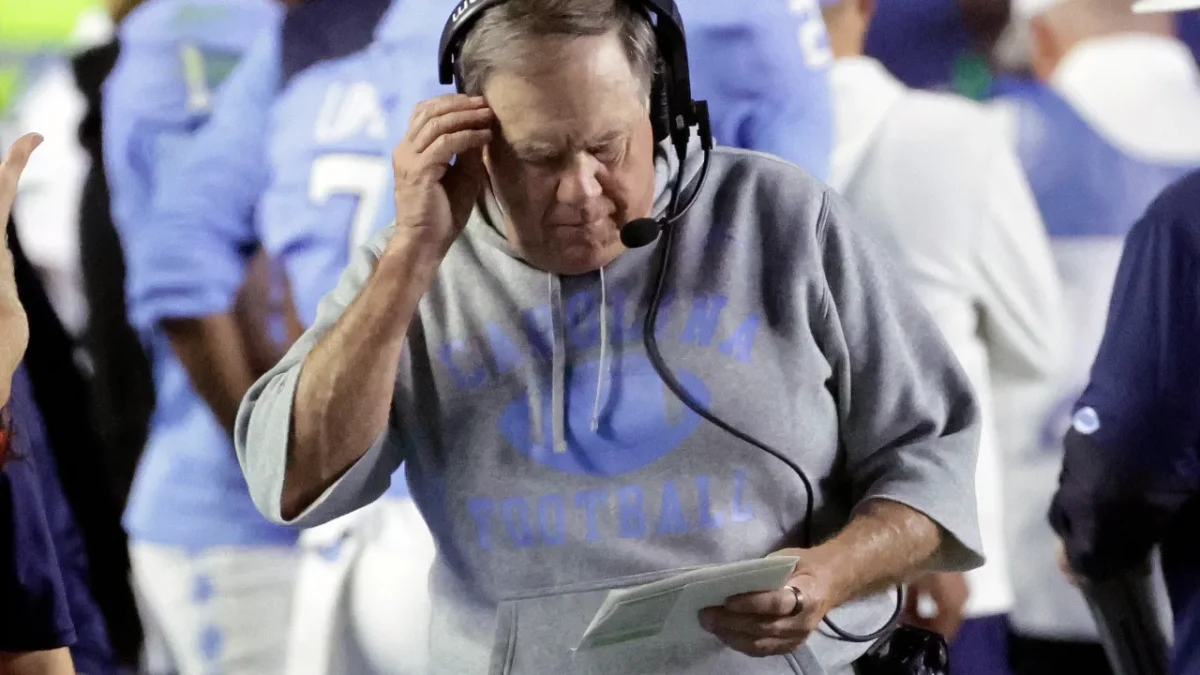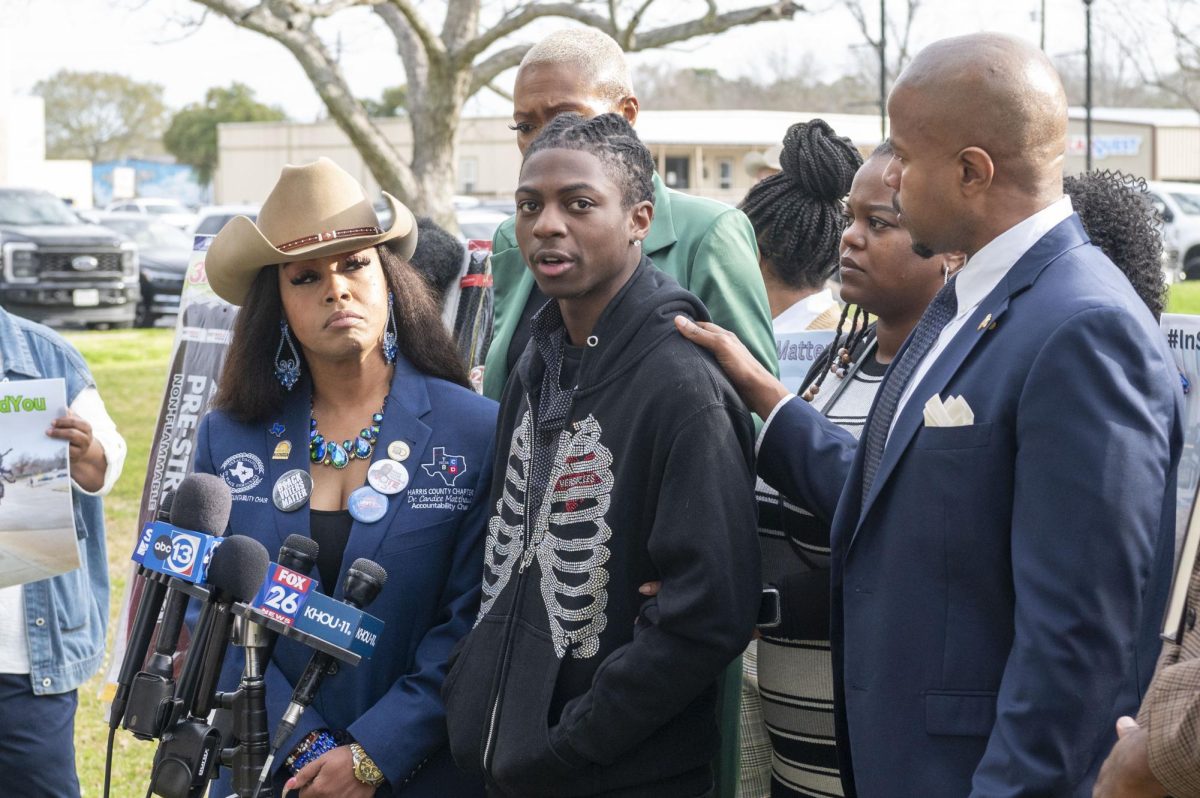ANAHUAC, Texas (AP) — A Black high school student’s monthslong punishment by his Texas school district for refusing to change his hairstyle does not violate a new state law that prohibits race-based hair discrimination, a judge ruled on Thursday.
Darryl George, 18, has not been in his regular Houston-area high school classes since Aug. 31 because the district, Barbers Hill, says the length of his hair violates its dress code.
The district filed a lawsuit arguing George’s long hair, which he wears in tied and twisted locs on top of his head, violates its policy because it would fall below his shirt collar, eyebrows or earlobes when let down. The district has said other students with locs comply with the length policy.
Before the trial, George and his mother, Darresha George, said they were optimistic.
Wearing locs is “how I feel closer to my people. It’s how I feel closer to my ancestors. It’s just me. It’s how I am,” George said.
After about three hours of testimony in Anahuac, state District Judge Chap Cain III ruled in favor of the school district, saying its policy is not discriminatory because the CROWN Act does not say that exemptions for long hair can be made for hairstyles that are protected by the law, including locs.
After the ruling, George and his mother cried and declined to speak with reporters.
Candice Matthews, a spokesperson for George’s family, said the 18-year-old asked her as he left the courthouse: “All because of my hair? I can’t get my education because of my hair?”
The CROWN Act, which took effect in September, prohibits race-based hair discrimination and bars employers and schools from penalizing people because of hair texture or protective hairstyles including Afros, braids, locs, twists or Bantu knots.
“The Texas legal system has validated our position that the district’s dress code does not violate the CROWN Act and that the CROWN Act does not give students unlimited self-expression,” Barbers Hill Superintendent Greg Poole said in a statement.
The district did not present any witnesses, instead only submitting evidence that included an affidavit from the district’s superintendent defending the dress code policy. Its attorneys argued that the dress code policy does not violate the CROWN Act because the law does not mention or cover hair length.
Testifying for George, Democratic state Rep. Ron Reynolds, one of the co-authors of the CROWN Act, said that while the protection of hair length was not specifically mentioned in the CROWN Act, it was inferred. Reynold also added, “Anyone familiar with braids, locs, twists knows it requires a certain amount of length.”
While there’s still a uphill battle going, George, a junior, has either served in-school suspension at Barbers Hill High School in Mont Belvieu or spent time at an off-site disciplinary program.


























